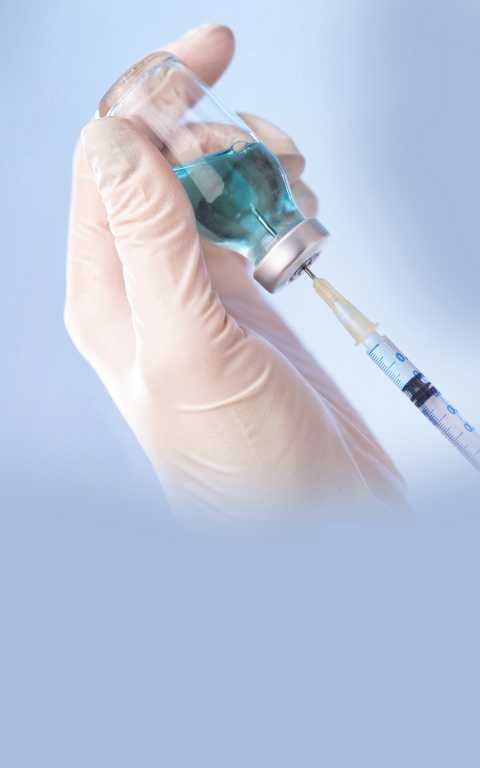
Patient Testimonials
why should you get the mmr vaccine?
Measles, mumps, and rubella, collectively known as MMR, are viral infections that can have severe consequences if the MMR vaccination is not administered.
Measles:
Symptoms include fever, cough, runny nose, and red, watery eyes, often followed by a rash that can spread over the entire body. Measles can also lead to ear infections, diarrhea, and pneumonia, though brain damage or death from measles is extremely rare.
Mumps:
Symptoms involve fever, headache, muscle aches, fatigue, and loss of appetite, along with swollen and tender salivary glands under one or both ears. Complications can include deafness, encephalitis or meningitis, and painful swelling of the testicles or ovaries, but death from mumps is very uncommon.
Rubella (German Measles):
This virus causes fever, sore throat, rash, headache, and eye irritation. If a pregnant woman contracts rubella, her baby may be born with congenital birth defects.
All three diseases are highly contagious; for instance, measles can be contracted even without close contact with an infected individual. Therefore, it is crucial to receive the MMR vaccine and adhere to the recommended vaccination schedule to protect against these serious diseases.
These Might be of Interest
when to give mmr vaccine?
It is recommended that the MMR vaccine should be given to infants to immunize them against the disease. Adults may also need the MMR vaccination in certain cases.
mmr vaccine age and mmr vaccine dose
Children are required to receive two doses of the MMR vaccine. The first dose should be administered between 12 and 15 months of age, and the second dose should be given between 4 and 6 years of age. For infants traveling between 6 and 11 months, an early MMR dose may be administered as a temporary measure, but the full vaccination schedule must still be followed.
While the MMR vaccine schedule primarily applies to children, adults aged 18 and older who are at high risk of measles, mumps, and rubella may also need the vaccine.
In the event of a mumps outbreak, a third dose of the MMR vaccine may be recommended.
mmr vaccine schedule
As mentioned above, the MMR vaccine schedule has a recommended time frame during which it is necessary to get the MMR vaccination. The MMR vaccine cost is discussed below.
mmr vaccine side effects
The MMR vaccine is safe and can be administered alongside other vaccines. Most side effects are mild and temporary.
Since the MMR vaccine combines protection against three separate diseases, each component might cause different side effects at varying times. Generally, the risk of side effects is lower after the second dose.
Common Side Effects:
- Mild Measles-like Symptoms: About one week to 11 days after the MMR vaccine, some children might develop a mild form of measles, characterized by a high temperature, rash, appetite loss, and general discomfort lasting 2 to 3 days.
- Mild Mumps-like Symptoms: Approximately 3 to 4 weeks after vaccination, about 1 in 50 children may experience mild swelling of the glands in the cheek, jaw, or neck, lasting a day or two.
- Rubella-related Joint Pain: One to 3 weeks after receiving the rubella component, some adult women may experience painful, stiff, or swollen joints for about 3 days.
Rare Side Effects:
- Bruise-like Spots
- Seizures (Fits)
These side effects are rare and generally do not cause long-term issues.
allergic reaction to the mmr vaccine
An allergic reaction to the MMR vaccine is uncommon but manageable, and children typically recover fully. Healthcare professionals administering the MMR vaccine at home or in a clinic are trained to handle such reactions effectively.
MMR Booster: The second dose of the MMR vaccine, commonly referred to as the MMR booster, is administered to further decrease the likelihood of contracting mumps, measles, or rubella.
mmr vaccination near me
With home vaccination services now available, you can avoid the stress of visiting a clinic or hospital and potentially aggravating any injury. Simply search for “MMR vaccination near me” and book an appointment with a nurse through Portea. You’ll receive care from highly trained professionals, helping you return to your normal life as soon as possible.
how to book vaccination at home
At home vaccination offers a convenient and straightforward way to stay up-to-date on your immunizations. Here’s a quick overview of the process:
- Schedule: Simply contact a reputable home vaccination service. They will guide you through the available vaccines and answer any questions you may have. Once you’ve chosen the right vaccination, you can schedule a convenient appointment time for the home visit.
- Nurse Visit: On the scheduled day of home visit vaccination, a qualified healthcare professional will visit your home. They will review your medical history and ensure you’re eligible for the chosen vaccine. After administering the vaccination, they will monitor you for any immediate reactions.
- Post-vaccination Guidance: The healthcare professional will provide you with detailed instructions on post-vaccination care, including any potential side effects to watch for. They will also answer any questions you may have about the vaccination or your overall health.
- Next-dose Reminders: The home vaccination service will keep track of your vaccination schedule and may send you reminders for any upcoming booster doses you might need to ensure long-term immunity.
portea’s other services
Portea’s comprehensive services, from doctor consultations, physiotherapy, nursing home care, nursing care, trained attendants.diagnostics, medical equipment, caretakers and vaccination service ensure that all your healthcare needs are met with professionalism and care. Whether you need to buy or seek assistance,rely on us for top-tier healthcare solutions tailored to your requirements. Portea is your trusted partner in health.
faq’s
- How can measles, mumps, and rubella (MMR) be treated and prevented?
The primary method of preventing measles, mumps, and rubella is through the MMR vaccine. It is recommended for children to receive two doses of the vaccine—first between 12 and 15 months of age and the second between 4 and 6 years of age. The vaccine is also advised for certain adults, especially those who are at higher risk or in outbreak situations.
Treatment: There is no specific antiviral treatment for measles, mumps, or rubella. Treatment focuses on relieving symptoms and providing supportive care. For measles, management includes symptom relief and prevention of complications. Mumps treatment involves pain relief for swollen glands and fever management. Rubella treatment is supportive, and pregnant women who contract rubella should receive specialized care to manage potential effects on the fetus.
- What are the uses of the MMR injection?
The MMR injection is used to prevent measles, mumps, and rubella. It is essential for reducing the incidence of these diseases and preventing their spread, particularly in areas with outbreaks or among individuals at higher risk. The vaccine helps in maintaining public health and controlling these contagious illnesses.
- What are the benefits of receiving the MMR injection?
The MMR injection provides effective protection against measles, mumps, and rubella. It contributes to herd immunity, helping to protect those who cannot be vaccinated, such as infants and individuals with certain medical conditions. The vaccine offers long-term immunity, significantly reducing the risk of contracting these diseases and their potential complications.
- How does the MMR injection work?
The MMR vaccine contains live attenuated (weakened) viruses for measles, mumps, and rubella. These weakened viruses stimulate the immune system to produce a response without causing the actual diseases. The body develops antibodies against these viruses, providing protection if exposed to the real pathogens in the future.
- What should you do if you forget to take the MMR injection?
- First Dose: If the first dose is missed, it should be administered as soon as possible. Follow up with the second dose at the recommended age.
- Second Dose: If the second dose is missed, it should be given as soon as possible. There is no need to restart the vaccination schedule; simply receive the missed dose at your earliest convenience.
- Consult a Healthcare Provider: If you miss a dose, consult with a healthcare provider to determine the best course of action and ensure that your vaccination schedule is up-to-date.
References
Doctor Consultation
Nursing
Physiotherapy
Trained Attendant
Elder Care
Mother & Baby Care
Lab Tests
Medical Equipment
Speciality Pharma
Critical Care





